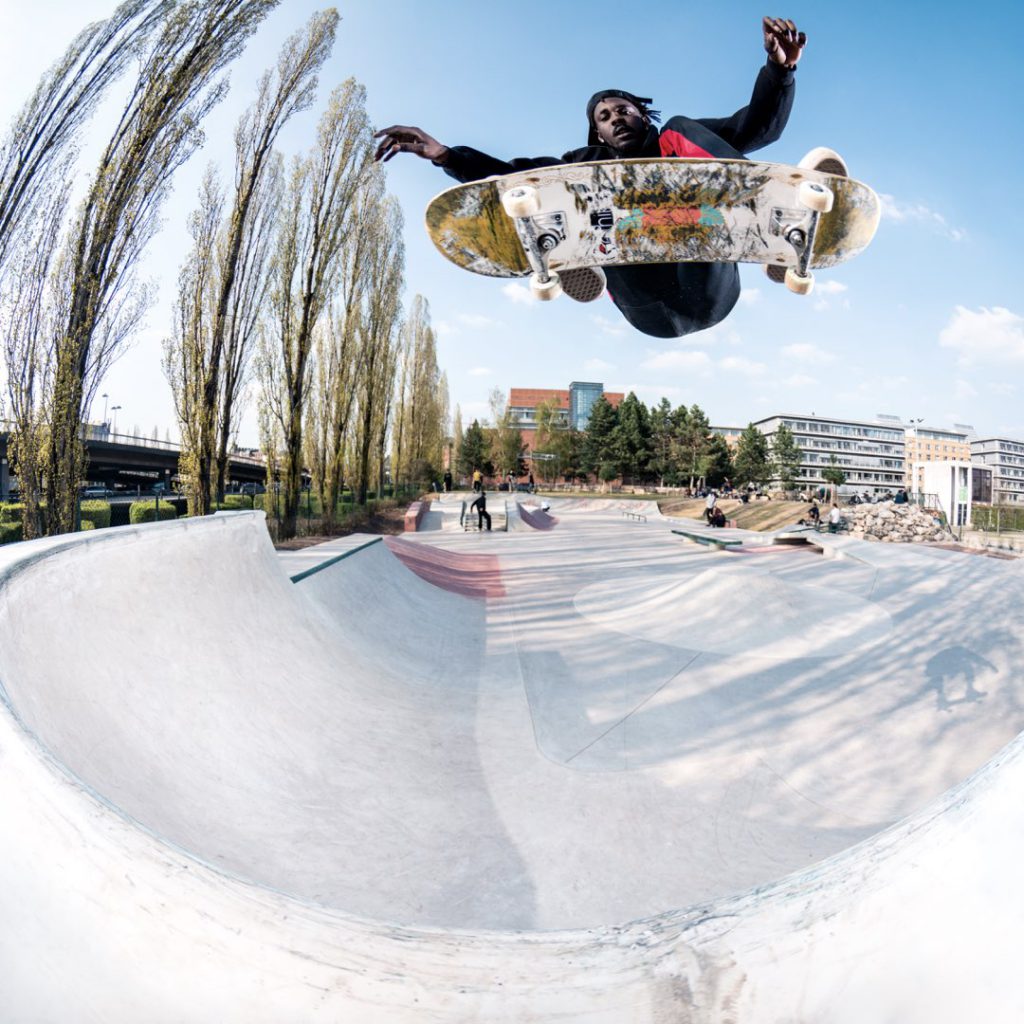In light of skateboarding’s debut as an Olympic discipline, we contributed a critical guest article in issue 03/2019 of Playground @ Landscape Magazine. The main question is whether skateboarding’s inclusion in the 2020 Tokyo Games will have a direct impact on the design process and planning of skateparks in Germany (and beyond).
The Olympics are a hot-button issue among skateboarders that has led to much controversy. Previously, our team had already made scientific forays into exploring ‘Skateboarding at the Intersection Between Subculture and the Olympics’. As a concrete example, the article draws on the planning of the skatepark at Bürgerpark in the town of Saarbrucken, Germany.
In a creative manner, the park blends organic shapes and geometric elements known from street furniture into a harmonious whole that blends elegantly with the natural surroundings. Although the issue of the Olympics was already quite prominent during the park’s planning process, the design did not factor in the new role of skateboarding as ‘performance sport’. For this reason, the article contrasts two approaches: The (sub)cultural aspects of skateboarding and the standards related to the official Olympic disciplines of Park and Street Skateboarding. We then connect these findings with the planning process in Saarbrucken that closely involved a participatory group of end users. In a nutshell, here is our conclusion that, in our humble opinion, applies to all future skatepark projects on a local and regional level:
A skatepark situated in public space is, first and foremost, a place of community instead of an arena for competitions or a performance sports training center. The communal enjoyment of leisure time in a space with high sojourn quality is the main factor. The additional opportunity for a select few to use the park in preparation for their next competition will always remain secondary, especially due to spatial constrictions. This competitive aspect can only be considered in the planning of larger-sized facilities that also serve as competition sites. But if we ask whether the inclusion of skateboarding into the Olympic Games will have a direct impact on the creative planning of public skateparks, the answer is: Not in the Skatepark Saarbrucken and also not in the majority of future public skatepark designs.
For the entire article, visit playground-landscape.com where you can also read the entire issue as an e-paper.
